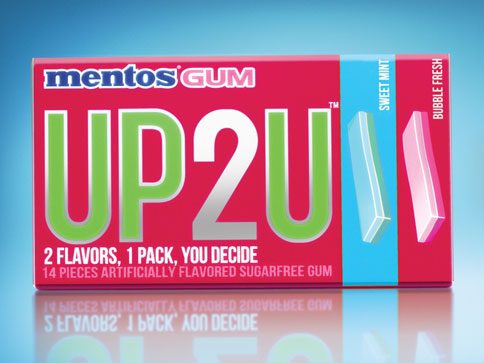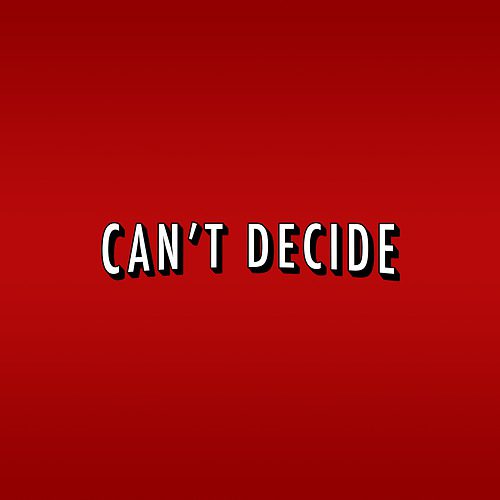
If freedom is an exploding horizon of possible options and a friendly butt-tap of encouragement to “go, choose one,” I’ll take some mild form of oppression — thanks. The eternal possibility of “another option” isn’t a space to stretch my arms and sing the national anthem — it is the paralysis of the human person into grotesque inaction. This is best shown by Netflix.
To sit down and choose “any movie” out of the massive expanse of options Netflix offers is nearly impossible. Every choice is plagued by the immediate availability and advertised possibility of a better choice lurking in the scroll-down. The law, I think, is this: The longer it takes a group of friends to choose a single movie from the options available to them, the less appealing each possible choice looks. Every apprehended option speaks of better unapprehended options. We become saturated with possibility, thick with it, to the point that the prospect of actually choosing something becomes a point of anxiety.
The idea that existential freedom blossoms from a mere diversity of choice and the constancy of “another option” becomes supremely suspect some ten minutes into movie-searching, as we begin to employ methods to protect ourselves from the yawn of choice — narrowing ourselves to 5 choices, employing a democratic voting system, setting ourselves a time limit (if we haven’t picked something by 11:30, we’re going with Sharktopus), or forcing ourselves to remain in a genre (can we all just agree on an emotionally-repressed BBC romantic period-piece?). In short, we initiate processes of restriction and law-making. We begin our Netflix-search as free-and-easy hipsters of the Untied, Choose-Whatever Generation — we end as fascists. And even with our self-restrictions, we usually end in frustration, saying “Let’s just do this one,” with an air of absurdism in which any option is better than a continued wallowing in the paralysis of possible options.
But this paralysis is not cured by our eventual choice. Finally watching the movie is not characterized by relief, but by skepticism. We do not rest in our choice. “If it’s really bad, we can still choose another one.” We watch our movie through the lens of another possibility which floats over our vision like a specter and makes the movie we watch the object of intense judgment — we are utterly ready to abandon ship (at least until the movie sells itself to us).
But it’s not that bad — is it? After all, this is an unusual situation. Usually you approach Netflix with some idea of what you want to watch, and this frame restricts your choice and saves you from paralysis. True — and that’s quite the point — but this isn’t really about Netflix.
Our culture is plagued (which only ever means that I am plagued and I believe it of others) with an aversion to the given, the decisive — those people, places and things that are given to us and we to them, annihilating the possibility of another person, another place, and another thing. Wendell Berry describes this aversion as our constant, wistful expectation of a “better place” — an attitude destroying American agriculture and community. I want to riff on his melody.
Our American conception of freedom has its primary referent in the freedom of the consumer to “take his business elsewhere,” in the freedom of the shopper to buy this instead of that, in the freedom of the individual as an economic unit to — in the event of not liking one thing — choose another. Choice is not a way to value — the way in which we attain something good — no, it is a value. Choice is a good, quite apart fr0m what we choose.
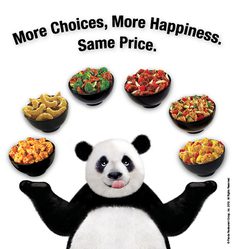

The logic of the marvelous people who support abortion is not some bizarre misdirection — it is a proper blossoming of a capitalistic misconception of freedom, that the virtue of freedom is not in making the right choice, but in the mere fact that we are floating in a myriad of possibilities, in the possibility of choice itself which is the supposed “power” of the consumer and his promise of satisfaction. And so we are “pro-choice.” The possibility of “another option” to pregnancy is a value in itself — even when that other option involves killing a child.
We indulge the same illusion that a Netflix-party indulges — that more possibilities will make us a happy, increasing our chances of making the right choice and ending up satisfied. But as with Netflix, choice as an open-ended category paralyzes from ever really doing anything. And do lurch out into action, the possibility of another option — and worse, the advertisement of another option — haunts our decisions and transforms them into non-decisions, akin to trying on a shoe. We never really annihilate ourselves from the primordial soup of possibility.
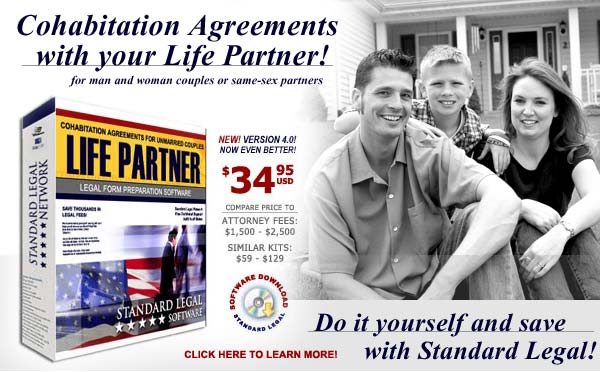 Marriage — legally and culturally speaking — is no longer a self-restriction of existence, by which I promise (promise!) myself to another and thereby rip myself from the possibility of doing otherwise. The very possibility of no-fault divorce and pre-nuptial agreements keeps the door open to another possibility — a “better” way. Is it a surprise that my generation is moronic about the idea of marriage, and more than moronic, deathly frightened 0f ever choosing it, preferring the dialect of trying-it-out to till-death-do-us-part in our doomed but way-fun adventures in cohabitation? How difficult it is to choose an unfragmented, holistic life, how difficult it is to promise ourselves to something, how difficult it is to maintain that purity of heart which wills one thing (Kierkegaard) when the very air we breath exalts the freedom of choice! The myth is that we will be enabled to choose what we really want in this atmosphere. The reality is that we are terrified from choosing anything at all, and worse, that even in choosing we don’t choose — we try. What to call a marriage open to the possibility of divorce? If it works, did it really work? If I die un-divorced, did I stay faithful to my vows — or did I try marriage out, right up to the point of death?
Marriage — legally and culturally speaking — is no longer a self-restriction of existence, by which I promise (promise!) myself to another and thereby rip myself from the possibility of doing otherwise. The very possibility of no-fault divorce and pre-nuptial agreements keeps the door open to another possibility — a “better” way. Is it a surprise that my generation is moronic about the idea of marriage, and more than moronic, deathly frightened 0f ever choosing it, preferring the dialect of trying-it-out to till-death-do-us-part in our doomed but way-fun adventures in cohabitation? How difficult it is to choose an unfragmented, holistic life, how difficult it is to promise ourselves to something, how difficult it is to maintain that purity of heart which wills one thing (Kierkegaard) when the very air we breath exalts the freedom of choice! The myth is that we will be enabled to choose what we really want in this atmosphere. The reality is that we are terrified from choosing anything at all, and worse, that even in choosing we don’t choose — we try. What to call a marriage open to the possibility of divorce? If it works, did it really work? If I die un-divorced, did I stay faithful to my vows — or did I try marriage out, right up to the point of death?
But no matter, the awful is everywhere. It is in the way we work — my generation is expected to work several jobs, to move often, and be ready to drop whatever it is that we are doing at the whiff of a better option and a little more money. It is in the way we approach our bodies — gender is described as an open-ended possibility of virtually infinite choice, and we are encouraged at an early age to self-identify with a particular sexuality, gender and orientation. Far and fading is the terrifying given of a body that must be reckoned with, creeping closer is the ocean of of choice, the panic of which which usually ends in a non-decision — a regular taking up of different sexualities, a constant toying with identity — or that paralysis by which we settle into the non-descriptiveness of being nothing at all. It is in the way we treat our communities — as inherently leavable for another option. It is in having children — abortion allows us to try it over doing it. This, this is the millennial farce — we are tourists of our hometowns, dilettantes of our work, taste-testers of our relationships and brief visitors of the geography of our own bodies, all permanence and givenness haunted and negated by the siren-song of somewhere, someone, something else. Now then:
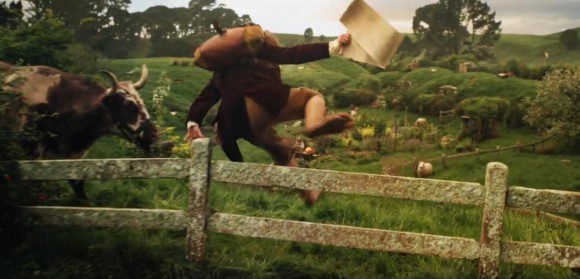
Adventure — a thing I would roughly define as a knock on your door that makes you get off your ass to do something that provides some justification to your drinking habits — is a synthesis of freedom and necessity — a free, creative dealing with what is given. It involves reckoning with what you do not choose. We would do well to make use of G.K. Chesterton’s formula here, that an adventure is only an inconvenience rightly considered. An inconvenience — given as an annihilation of other possibilities — like being born into a particular family, being a particular body, having a home in a particular place, a vocation to this particular woman, or a project of work no one else can do — these things resist being haunted by the possibility of another choice for the very reason that they are restrictions. We cannot do otherwise. We promise not to do otherwise. We are made terribly responsible by them.
Adventure is a mode fundamentally opposed to the paralysis of our culture. Against the vagueness of being able to do anything at all, against the absurdity of placing value in the mere ability to choose something else, adventure is an acceptance of what is given in all its thorniness, tragedy and splendor. To be on an adventure is to reduce, to limit, to burn the bridges that that no one else can burn at the terrible expense of any “other choice” or “better place” — but in this is our profound, existential experience of freedom.
Freedom chooses its necessities. Paradoxically, we are most certain that we are free when we freely determine ourselves — when we take care of the land we belong to, and destroy in ourselves the possibility of moving, when we make a vow and keep it, give ourselves a moral law and obey it, admit that we, without our choosing, have been given to a family and to a community, and give ourselves to them. Freedom is felt when we destroy “the other option,” knowing that we did not have to, but doing so anyways –for this is freedom used.
A life made sharp by the vow, the promise, the firm decision and the whittling of that glut of possibility into the narrow point of actuality— I want it. I want to cease coddling an extended not-doing and non-choosing, to stop indulging that constant potency which, for the mere fact of its ending in death, we call a “life.” Who is free, finally? The man who knows that no “action” of his ever annihilates the possibility to do otherwise, or the monk who vows poverty, chastity, and obedience? It’s easy enough to find out — ask each if they are happy.

